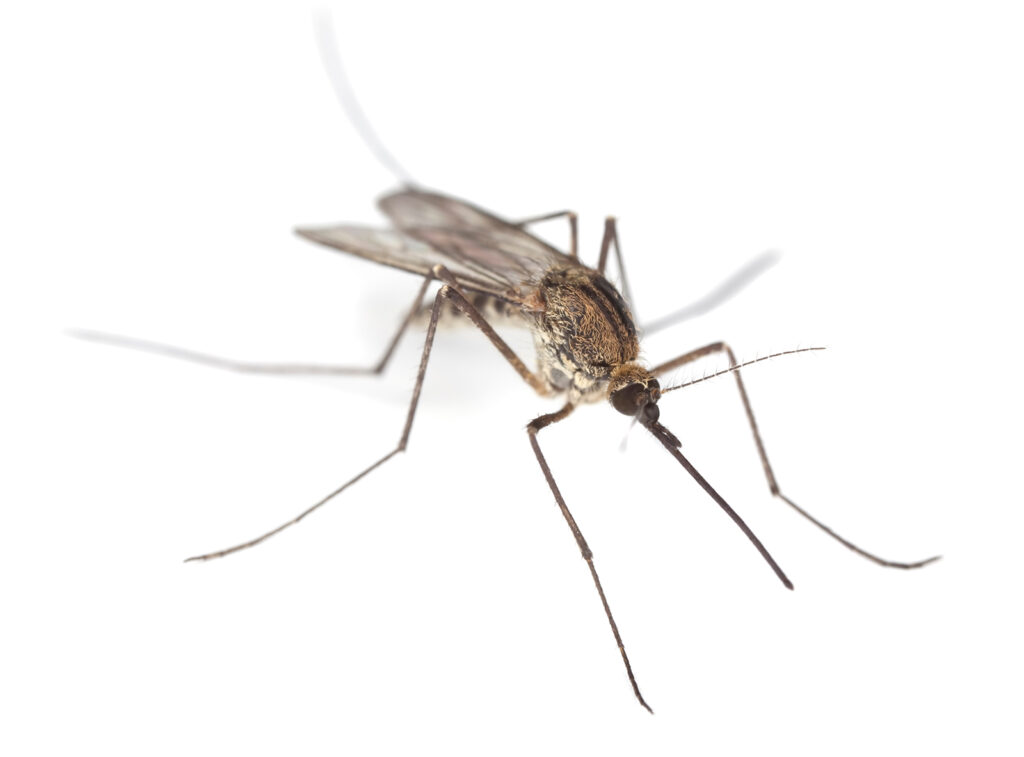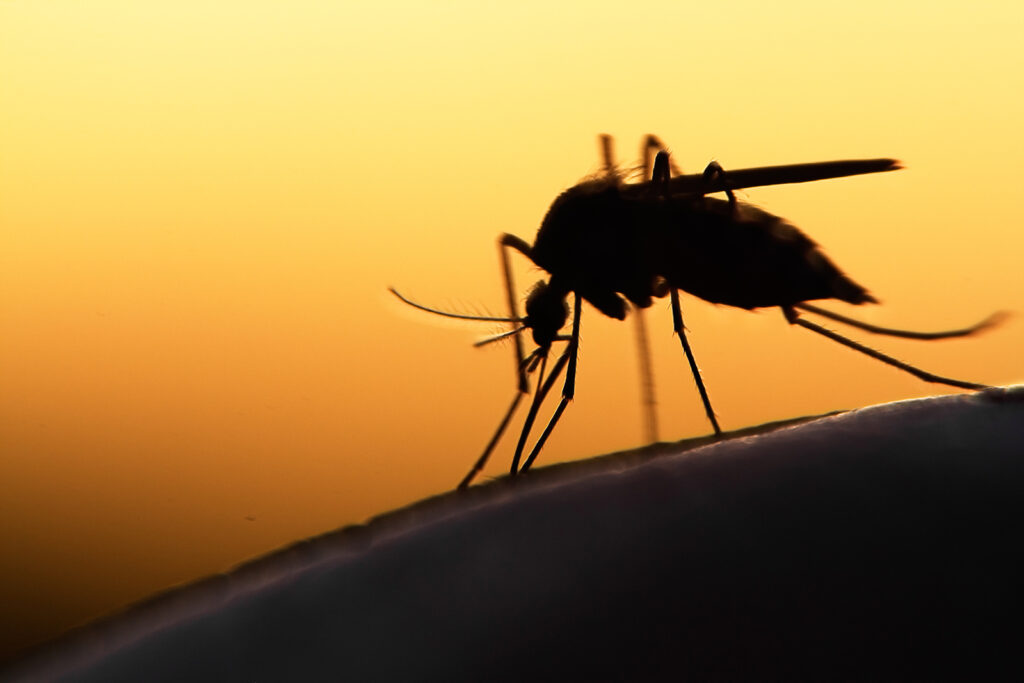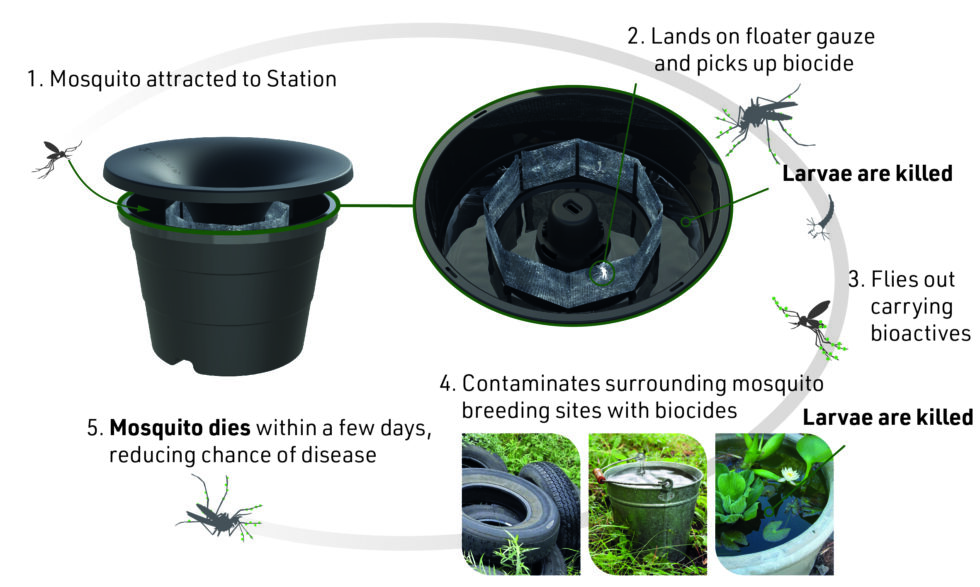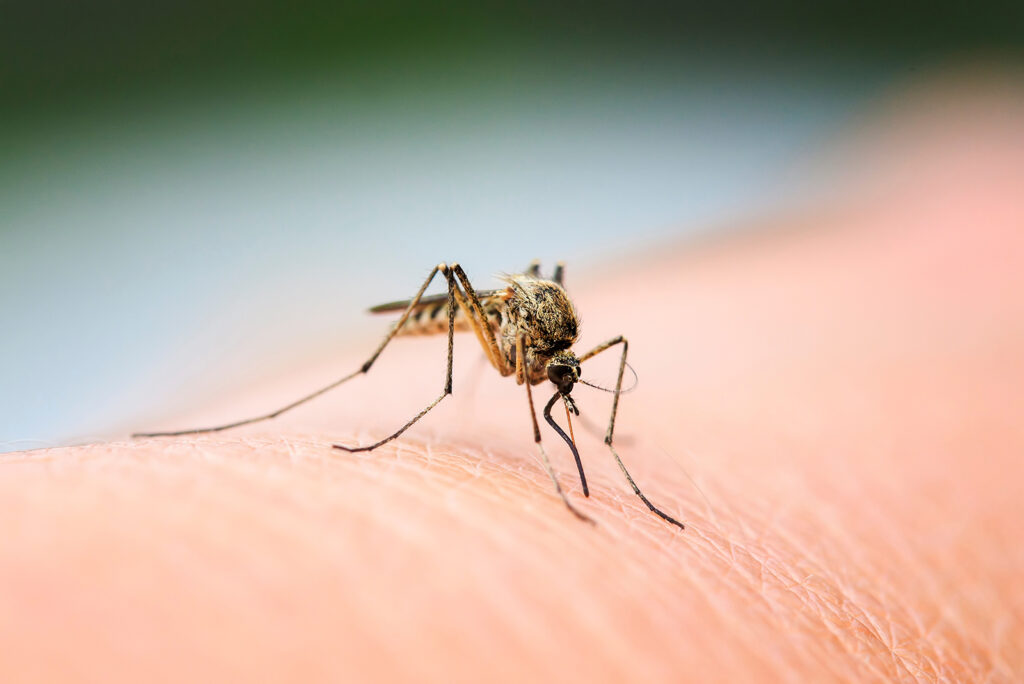Mosquitoes
Mosquitoes are flying insects known for their distinctive high-pitched buzzing sound and feeding on the blood. They belong to the family Culicidae and are found throughout the world, except for the polar regions. Many mosquito species females require blood in order to lay their eggs, while male mosquitoes feed on nectar and plants. Mosquitoes are important vectors of various diseases such as malaria, dengue fever, and Zika virus. They are also a nuisance to humans due to the itchy bites they leave behind. Mosquitoes have a complex life cycle, which includes eggs which are laid in standing water, larva, pupa, and adult stages.
There are many species of mosquitoes, each with its own unique characteristics and habitats. Despite their reputation, mosquitoes also play important roles in ecosystems, serving as food for many animals and contributing to pollination.
Should I call an Exterminator to Deal with Mosquitoes?
If you are experiencing a significant mosquito infestation around your home, it may be necessary to call an expert. Mosquitoes can be not only a nuisance, but they can also carry diseases that can be harmful to humans and pets.
A Killroy Pest Control pro can identify the source of the mosquito problem, whether it is stagnant water, overgrown vegetation, or other factors. We can then develop a plan to eliminate the mosquitoes, which may include applying insecticides, removing standing water, and reducing vegetation.
There are several steps you can take to reduce mosquitoes in and around your home:
- Remove standing water: Mosquitoes lay their eggs in standing water, so removing any sources of stagnant water is essential. This includes emptying birdbaths, flower pots, buckets, and any other items that can collect water.
- Maintain your yard: Mosquitoes like to hide in tall grass and overgrown vegetation, so keeping your yard tidy and well-maintained can help reduce their numbers. Trim back bushes and trees, and mow your lawn regularly.
- Use insect repellent: Wearing insect repellent can help keep mosquitoes at bay.
- Wear protective clothing: Covering your skin with long-sleeved shirts, pants, and socks can help reduce mosquito bites.
- Use mosquito traps: There are various types of mosquito traps available.
- Use screens: Installing screens on windows and doors can help prevent mosquitoes from entering.
- Consider professional treatment: If you have a severe mosquito problem, or if you live in an area with high mosquito activity, you may want to consider hiring a professional.
One Way Killroy Help You is by installing the In2Care Mosquito Trap
The In2Care Mosquito Trap
How Does the Mosquito Trap Work?
The In2Care Mosquito Trap uses a combination of natural mosquito attractants and larvicide to target and eliminate mosquito populations. The trap consists of two pots that are designed to attract female mosquitoes looking for a place to lay their eggs. Once inside the trap, the female mosquito comes into contact with a specially treated netting that contains a larvicide. The mosquito then carries the larvicide on her body to other mosquito breeding sites, effectively killing off entire populations of mosquitoes.
The attractants are designed to mimic the natural breeding sites of mosquitoes, attracting female mosquitoes. Once inside the trap, the female mosquito comes into contact with a netting that contains larvicide. The mosquito then carries the larvicide to other mosquito breeding sites, effectively killing off entire populations.
Why is the In2Care Mosquito Trap is a great solution?
- Safe and eco-friendly: The In2Care Mosquito Trap uses a natural larvicide that is safe for humans and pets, as well as the environment. It is a much safer and eco-friendly alternative to traditional mosquito control methods.
- Effective: It has been scientifically proven to be highly effective in reducing mosquito populations. In fact, studies have shown that it can reduce mosquito populations by up to 95% in a few weeks.
Watch a Video Explaining the In2Care Mosquito Trap Process
The In2Care Mosquito Trap is the ultimate solution for safe and effective mosquito control. Its safe and eco-friendly design, coupled with its effectiveness and affordability, make it the perfect choice for families looking to protect themselves from the dangers of mosquitoes. If you’re looking for a mosquito control solution that really works, contact Killroy Pest Control.
More to Know about Mosquitoes
Biology of Mosquitoes:
Mosquitoes belong to the family Culicidae and the order Diptera, which also includes flies. Most species of mosquitoes have slender and elongated bodies, with six long, thin legs and adults are covered with scales, which gives them their characteristic appearance. Mosquitoes are known for bloodsucking, which is a behavior exhibited only by the females. Males feed on nectar and other plant fluids and do not bite humans or animals.
There are over 3,500 species of mosquitoes, with each species having unique biology and behavior. The Anopheles mosquitoes are the most notorious vectors for malaria, while the Aedes aegypti mosquito is known to transmit dengue fever, yellow fever, and chikungunya. The Culex mosquito is a vector for West Nile virus and filariasis.
Behavior of Mosquitoes:
Mosquitoes are primarily active during the evening and early morning, although some species may be active during the daytime as well. They are attracted to their hosts by a combination of carbon dioxide, body heat, and other chemicals. Once a mosquito has found a host, it uses its proboscis to pierce the skin and suck blood.
Mosquitoes require water to breed, and the larvae of most species of mosquitoes live in stagnant water. Some species may lay their eggs in small pools of water, while others may lay their eggs in larger bodies of water. Mosquitoes may also breed in containers such as flowerpots, buckets, or discarded tires that collect water.
Health Risks Associated with Mosquito Bites:
Mosquitoes are known to transmit many serious diseases to humans and these diseases are caused by viruses or parasites transmitted by infected mosquitoes. The symptoms of mosquito-borne diseases vary depending on the type of disease and may range from mild to severe.
To protect yourself from mosquito bites, it is essential to use mosquito repellent, wear protective clothing, and avoid areas with high mosquito populations. It is also important to remove any stagnant water sources around your home, as these can provide breeding grounds for mosquitoes.
Mosquito FAQs
Mosquitoes are known to transmit a wide range of serious diseases to humans, including yellow fever, Zika fever, malaria, filariasis, and dengue. The female mosquito feeds on the blood of humans and animals, and in doing so, can transmit the viruses and parasites that cause these diseases. The transmission of disease through mosquito bites is a major public health concern around the world.
When mosquitoes bite people, the most common reactions to the bite are itching and swelling. These reactions occur as a result of the body’s immune response to the mosquito’s saliva. In some cases, mosquito bites can cause more serious reactions, such as fever, joint pain, and rash. Mosquito bites can also transmit diseases to humans.
Mosquitoes breed in standing water, such as puddles, ponds, and containers. Female mosquitoes lay their eggs on the surface of standing water, and the larvae hatch and develop in the water. Mosquitoes can breed in very small amounts of water, such as the water in a bottle cap, so it is important to eliminate standing water.
To protect yourself from mosquito bites, you can take several precautions. Wear long-sleeved shirts and pants when outdoors, use insect repellent, and avoid being outside during dawn and dusk when mosquitoes are most active. It’s also important to eliminate standing water around your home and to install screens on windows and doors to prevent mosquitoes from entering.
No, not all mosquitoes bite humans or animals. Some species of mosquitoes feed on nectar and other plant fluids and do not bite.
Yes, mosquitoes can transmit diseases to animals, including domestic animals and wildlife.











